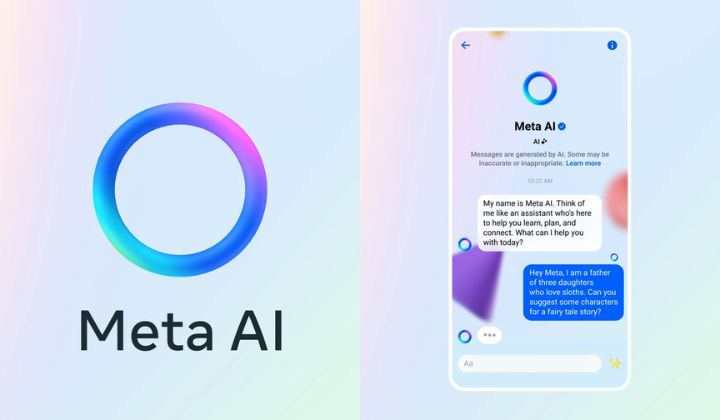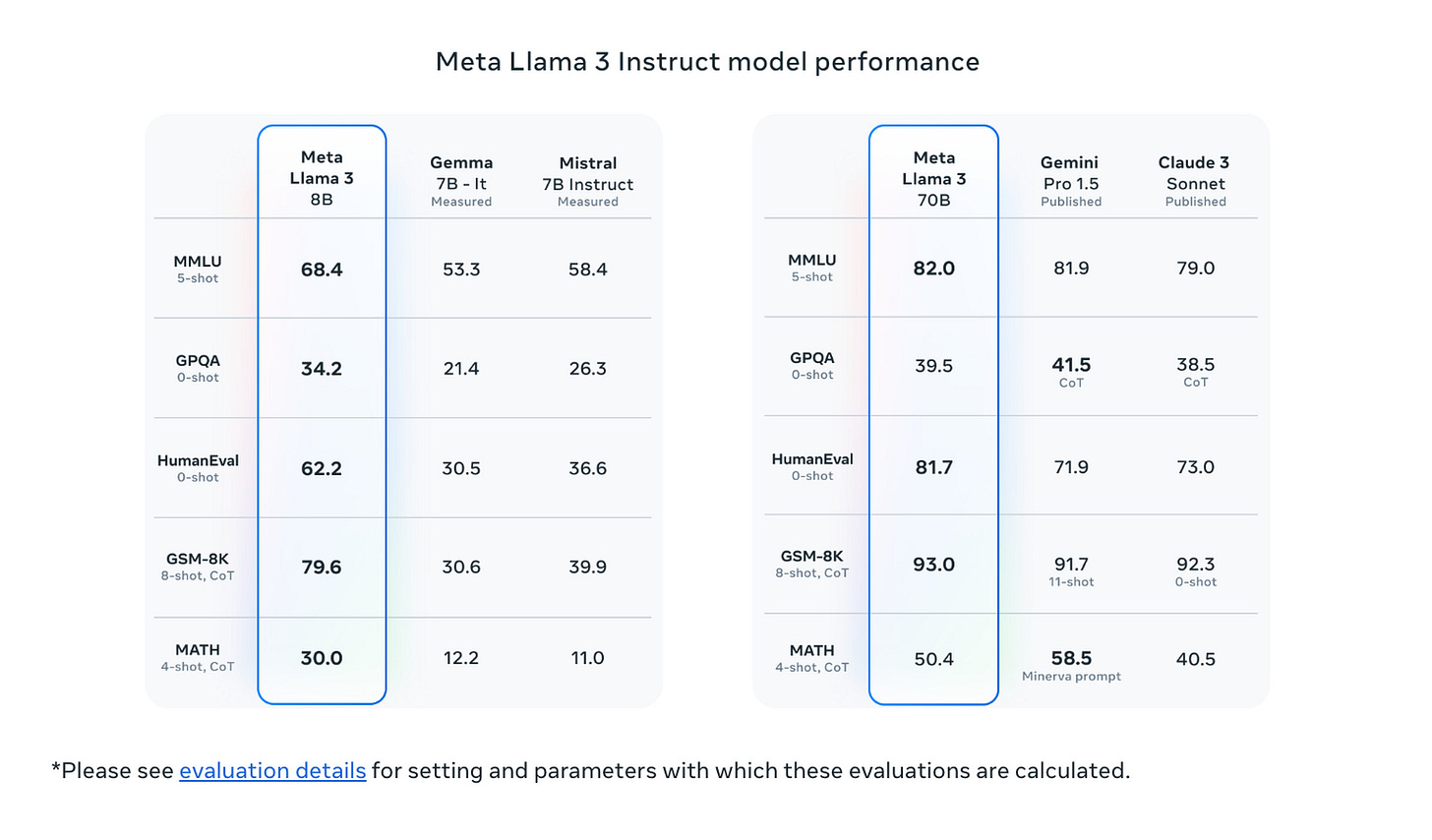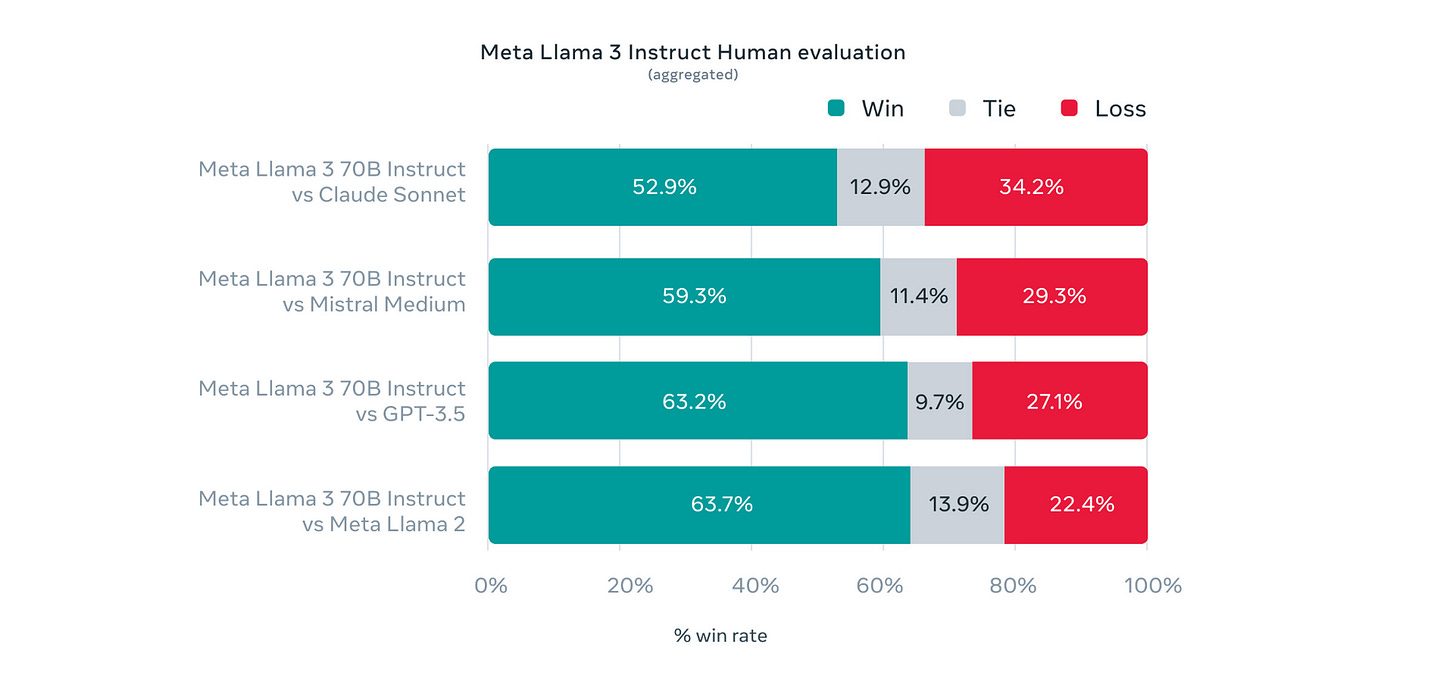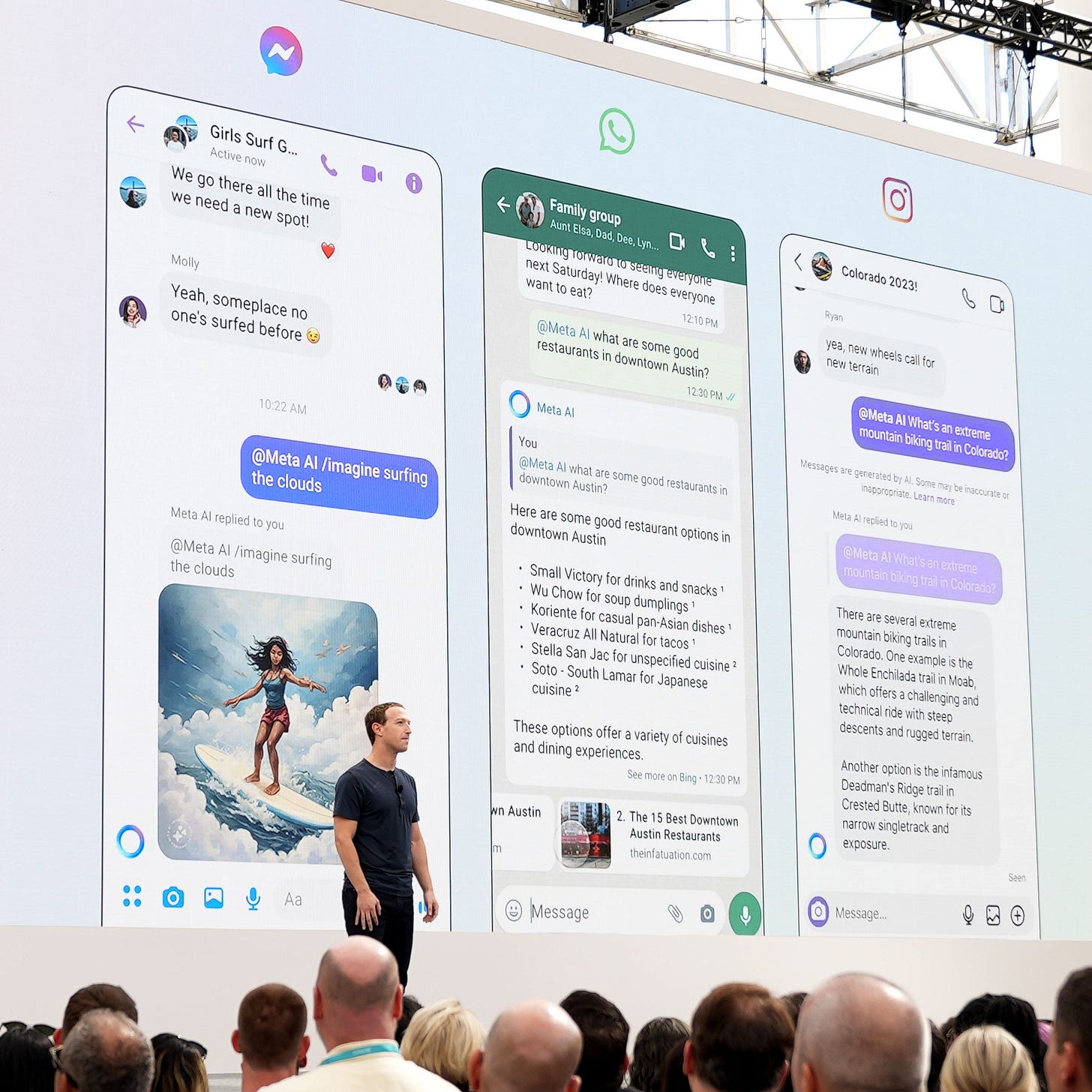AI: Meta shifts gears with Meta AI & Llama 3. RTZ #331
...serious AI investments of billions for billions
Meta is going ‘pedal-to-the-metal’ with Meta AI. Meta’s putting their multi-billion dollar investment in 350,000 plus Nvidia H100 AI GPU infrastructure to full use this year with serious AI training and inference loads. And throwing their LLM AI weight in against the best from OpenAI and Microsoft GPT and ChatGPT driven products, Google Gemini driven AI Search and the rest. Here’s the new Meta AI logo we’re going to see a lot more:
Users are going to have lots of LLM AI driven ‘ChatGPT’ style options to use this year, revving up the AI Tech Wave set of product innovations and introductions. The company is rolling out their next generation Llama 3 models in various flavors, and still in open-source formats. And perhaps more significantly, their ‘Smart Assistant’ driven multi-modal, Meta AI service, grounded with both Google and Bing search results.
As the New York Times outlines it all in “Meta, in its Biggest AI Push, Places Smart Assistants Across its Apps”:
“Users of Instagram, Facebook, WhatsApp and Messenger will be able to turn to the new technology, powered by Meta’s latest artificial intelligence model, to obtain information and complete tasks.”
“On a call with investors last spring, Mark Zuckerberg, the chief executive of Meta, said he believed that he had an opportunity to introduce artificially intelligent assistants “to billions of people in ways that will be useful and meaningful.”
“A year later, he is making good on his statement.”
“On Thursday, Meta will begin incorporating new versions of its A.I.-powered smart assistant software across its apps, which include Instagram, WhatsApp, Messenger and Facebook. The latest technology will be rolled out in more than a dozen countries, including Australia, Canada, Singapore and the United States.”
“The A.I. software will become practically omnipresent — inside the news feed, in search bars and in chats with friends. People will be able to ask the assistant, Meta A.I., for help in completing tasks and getting information, such as what concerts might be occurring in San Francisco on a Saturday night or the best options for vegan enchiladas in New York.”
“Meta A.I. is powered by LLaMA 3, the company’s newest and most powerful large language model, an A.I. technology that can generate prose, conduct conversations and create images.”
According to Meta, the new Llama 3 fares well in tests against most other LLM AI models, including Google’s Gemini models, as the Verge notes:
“Llama 3 currently features two model weights, with 8B and 70B parameters. (The B is for billions and represents how complex a model is and how much of its training it understands.) It only offers text-based responses so far, but Meta says these are “a major leap” over the previous version. Llama 3 showed more diversity in answering prompts, had fewer false refusals where it declined to respond to questions, and could reason better. Meta also says Llama 3 understands more instructions and writes better code than before.”
“In the post, Meta claims both sizes of Llama 3 beat similarly sized models like Google’s Gemma and Gemini, Mistral 7B, and Anthropic’s Claude 3 in certain benchmarking tests. In the MMLU benchmark, which typically measures general knowledge, Llama 3 8B performed significantly better than both Gemma 7B and Mistral 7B, while Llama 3 70B slightly edged Gemini Pro 1.5.”
The Verge also has more useful detail on Meta’s multimodal capabilities, and the broader positioning of these products vs OpenAI’s ChatGPT thus far:
“ChatGPT kicked off the AI chatbot race. Meta is determined to win it.”
“To that end: the Meta AI assistant, introduced last September, is now being integrated into the search box of Instagram, Facebook, WhatsApp, and Messenger. It’s also going to start appearing directly in the main Facebook feed. You can still chat with it in the messaging inboxes of Meta’s apps. And for the first time, it’s now accessible via a standalone website at Meta.ai.”
“For Meta’s assistant to have any hope of being a real ChatGPT competitor, the underlying model has to be just as good, if not better. That’s why Meta is also announcing Llama 3, the next major version of its foundational open-source model. Meta says that Llama 3 outperforms competing models of its class on key benchmarks and that it’s better across the board at tasks like coding. Two smaller Llama 3 models are being released today, both in the Meta AI assistant and to outside developers, while a much larger, multimodal version is arriving in the coming months.”
Meta founder and CEO Mark Zuckerberg is leading this charge directly, and goes through his strategy in detail with tech podcaster Dwarkesh Patel:
“I think the main thing that most people in the world are going to see is the new version of Meta AI. The most important thing that we're doing is the upgrade to the model. We're rolling out Llama-3. We're doing it both as open source for the dev community and it is now going to be powering Meta AI. There's a lot that I'm sure we'll get into around Llama-3, but I think the bottom line on this is that we think now that Meta AI is the most intelligent, freely-available AI assistant that people can use. We're also integrating Google and Bing for real-time knowledge.”
“We're going to make it a lot more prominent across our apps. At the top of Facebook and Messenger, you'll be able to just use the search box right there to ask any question. There's a bunch of new creation features that we added that I think are pretty cool and that I think people will enjoy. I think animations is a good one. You can basically take any image and just animate it.”
It’s a very clear and thoughtful roadmap, covering not just the products being introduced, but the long-term strategy and positioning of Meta vs its competitors worldwide. And full-throated support of Meta’s commitment to an open source AI strategy. Well worth listening or reading.
The bottom line is that at this early juncture in the AI Tech Wave, we have serious and solidly competitive AI offerings from a strong arrays of companies. Each resolved to scale the models as aggressively as possible, despite the multi-hundred plus billions in AI infrastructure capex involved. The key players for now are indeed ‘pedal-to-the metal’. Stay tuned.
(NOTE: The discussions here are for information purposes only, and not meant as investment advice at any time. Thanks for joining us here)








Insightful write up. Thanks 👍